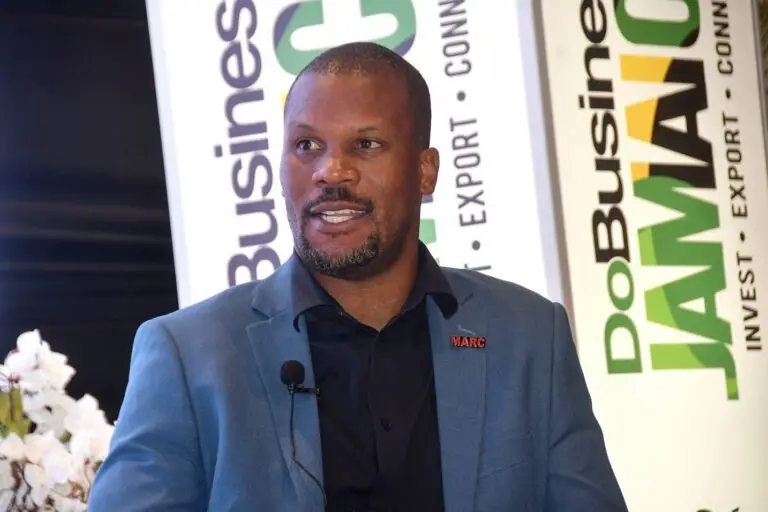In a fast-moving global economy, Jamaican manufacturers are being encouraged to adopt a forward-thinking approach to export readiness rather than waiting for demand to spark action. Industry leaders warn that companies unprepared to scale risk not only losing potential deals but damaging Jamaica’s reputation on the international stage.
Speaking at the Jamaica Manufacturers and Exporters Association (JMEA) Buyers Reception at the Jamaica Pegasus Hotel, Private Sector Organisation of Jamaica (PSOJ) President, Metry Seaga, delivered a strong message: prepare now or get left behind.
“By the time you’ve secured a sale, it’s too late to start ramping up,” Seaga emphasized. Drawing from real-world examples, he pointed out that several local firms had fumbled major opportunities because they lacked the infrastructure to deliver after generating overseas interest.
Seaga, also CEO of Jamaica Fiberglass Products, cautioned manufacturers against making empty promises to foreign buyers. “A single bad experience with one Jamaican company can taint the entire country’s image in that buyer’s mind,” he warned.
Marc Frankson, head of Designs by Marc Limited, echoed Seaga’s sentiments, adding that businesses must recognize they are ambassadors for Jamaica’s manufacturing sector. “Your brand isn’t just your own — it’s the Jamaican flag you’re flying when you deliver that product.”
Beyond having a great product, the panel stressed the need for solid operational systems, access to financing, and trusted supply chain relationships. Agencies like the Trade Board and JMEA offer resources to help companies navigate the complex export landscape, but ultimately, the mindset shift must come from within the businesses themselves.
A key takeaway from the discussion was the importance of relationship management, not just with customers but across the entire production chain. “Without strong ties to your suppliers, your raw material access can crumble — and with it, your ability to deliver,” Seaga noted.
The pandemic served as a brutal wake-up call, highlighting the vulnerability of businesses overly dependent on single suppliers. Frankson shared how his company adapted post-COVID by diversifying their supplier network across regions like the Far East, the US, and South America, ensuring better resilience to global disruptions.
“We had to rethink everything. One reliable supplier isn’t enough anymore — we needed options,” Frankson said, highlighting the flexibility this approach has provided.
However, not all industries can pivot easily. Food manufacturers, for example, face tougher challenges when it comes to switching suppliers without affecting taste, quality, or regulatory compliance. For them, the recommendation is to invest in long-term procurement planning and negotiate extended supply agreements.
With global tariff policies shifting, local producers are being advised to find opportunity in adversity. Frankson pointed out that new tariffs on international competitors could give Jamaican products a pricing advantage previously out of reach.
Seaga closed with an optimistic note: “We’re world-class. We produce excellence. And with global conditions shifting, this could be our time to shine — if we’re ready.”
As Jamaica positions itself for greater participation in global trade, manufacturers are being called to prepare not when opportunity arrives — but well before it ever knocks.

